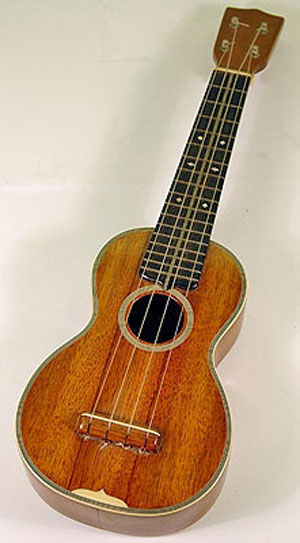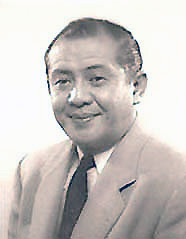
The ukulele, also called a uke, is a member of the lute family of instruments of Portuguese origin and popularized in Hawaii. It generally employs four nylon strings.

The Haida are an Indigenous group who have traditionally occupied Haida Gwaii, an archipelago just off the coast of British Columbia, Canada, for at least 12,500 years.
Sakuma is a Japanese surname. Notable people with the surname include:

Jake Shimabukuro is a ukulele virtuoso and composer from Hawaii known for his fast and complex finger work. His music combines elements of jazz, blues, funk, rock, bluegrass, classical, folk, and flamenco. Shimabukuro has written numerous original compositions, including the entire soundtracks to two Japanese films, Hula Girls (2007) and Sideways (2009), the Japanese remake of the same name.

Kensuke Sasaki is a Japanese retired professional wrestler, mixed martial artist, and founder of the now-defunct wrestling promotion Diamond Ring.

Oniroku Dan was a Japanese author who has been called, "the most celebrated writer of popular SM novels in Japan." Many of his stories have been filmed, most notably by Nikkatsu studio in their Roman Porno series. Dan had a close professional association with actress Naomi Tani throughout her career. He died on May 6, 2011.
Katsuhiko Nakajima is a Japanese professional wrestler currently working as a freelancer, though he primarily works with GLEAT. He is a former Triple Crown Heavyweight Champion in All Japan Pro Wrestling and a two-time GHC Heavyweight Champion in Pro Wrestling Noah.
Katsuhiko Nagata is a Japanese wrestler and mixed martial arts, who won the silver medal in the 69 kg Greco-Roman wrestling event at the 2000 Summer Olympics.

Escapade in Japan is a 1957 American family adventure film. It was directed by Arthur Lubin and starred Teresa Wright, Cameron Mitchell, Jon Provost and Roger Nakagawa.
Katsuhiko Tasaka was a Japanese film director. He directed films from 1930s to 1960s. His older brother, Tomotaka Tasaka, was also a Japanese film director.

The Nihon Ukulele Association is a Japanese association for ukulele players. It was founded in 1959 by Yukihiko Haida, a Hawaiian-born nisei who moved to Japan at a young age.

Katsuhiko Kashiwazaki – Japanese judoka, champion and medalist of championships Japan and the world, author of books and one of the leading judo specialists in the world.

Tokyo File 212 is a 1951 spy film directed by Dorrell McGowan and Stuart E. McGowan. George Breakston wrote the film's script and co-produced it with Dorrell McGowan jointly under the banner of their newly formed Breakston–McGowan Productions and Japanese Tonichi Enterprises Company. Californian lawyer Melvin Belli executive-produced the feature while composer Albert Glasser provided the film's score.

The Woodsman and the Rain is a 2011 Japanese comedy film co-written and directed by Shuichi Okita, about a lumberjack involved in shooting of a zombie movie.
Diamond Ring was an independent Japanese professional wrestling promotion that, until 2012, was known as Kensuke Office. The promotion was founded and owned by puroresu legend Kensuke Sasaki, who owned and operated it since its creation in 2005. In February 2014 the promotion ran its last card, after which Sasaki announced his retirement.

The Lion Standing in the Wind is a 2015 Japanese drama film directed by Takashi Miike. It was released on March 14, 2015. It is based on the true story of a Japanese doctor working in Africa using information from letters sent home to the girl he left behind in Japan. The letters originally formed the basis for the popular 1987 Japanese song "Kaze ni Tatsu Lion" by Masashi Sada, who was encouraged by actor Takao Osawa to adapt the song into a novel. The novel was released in 2013 and was later adapted into the 2015 film directed by Takashi Miike.

"Ginza Kankan Musume" is a popular song composed by Ryōichi Hattori, with lyrics by Takao Saeki. It was recorded by Hideko Takamine and released in April 1949.
Katsuhiko Murooka is a Japanese retired professional shogi player who achieved the rank of 8-dan.

Yukihiko Harry Haida was a composer, ukulele player and steel guitarist. He and his brother Katsuhiko Haida founded the Nihon Ukulele Association.

Shimaguchi Komao; April 10, 1911 – March 17, 1945) was a Japanese composer of ryūkōka and gunka.














